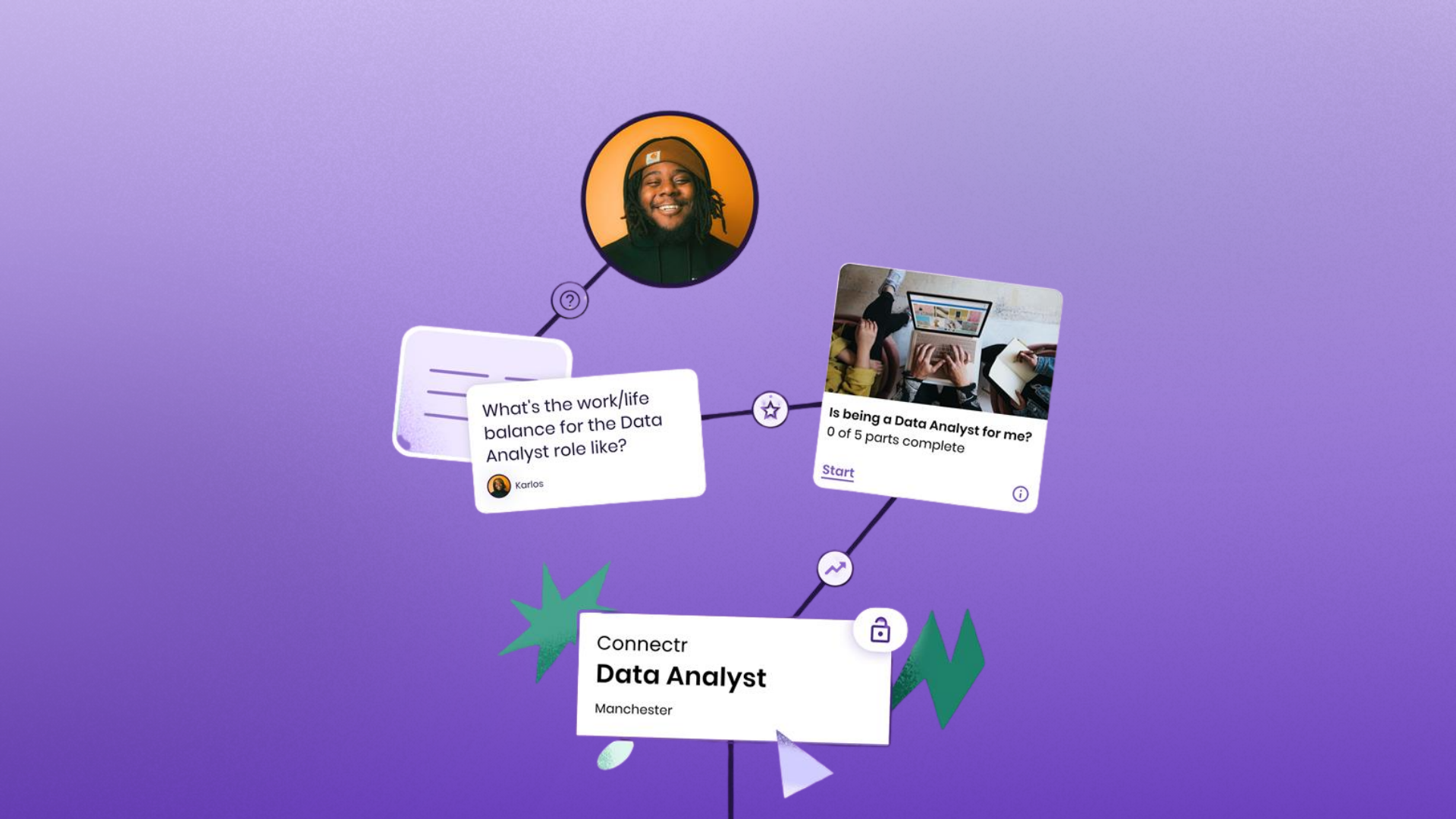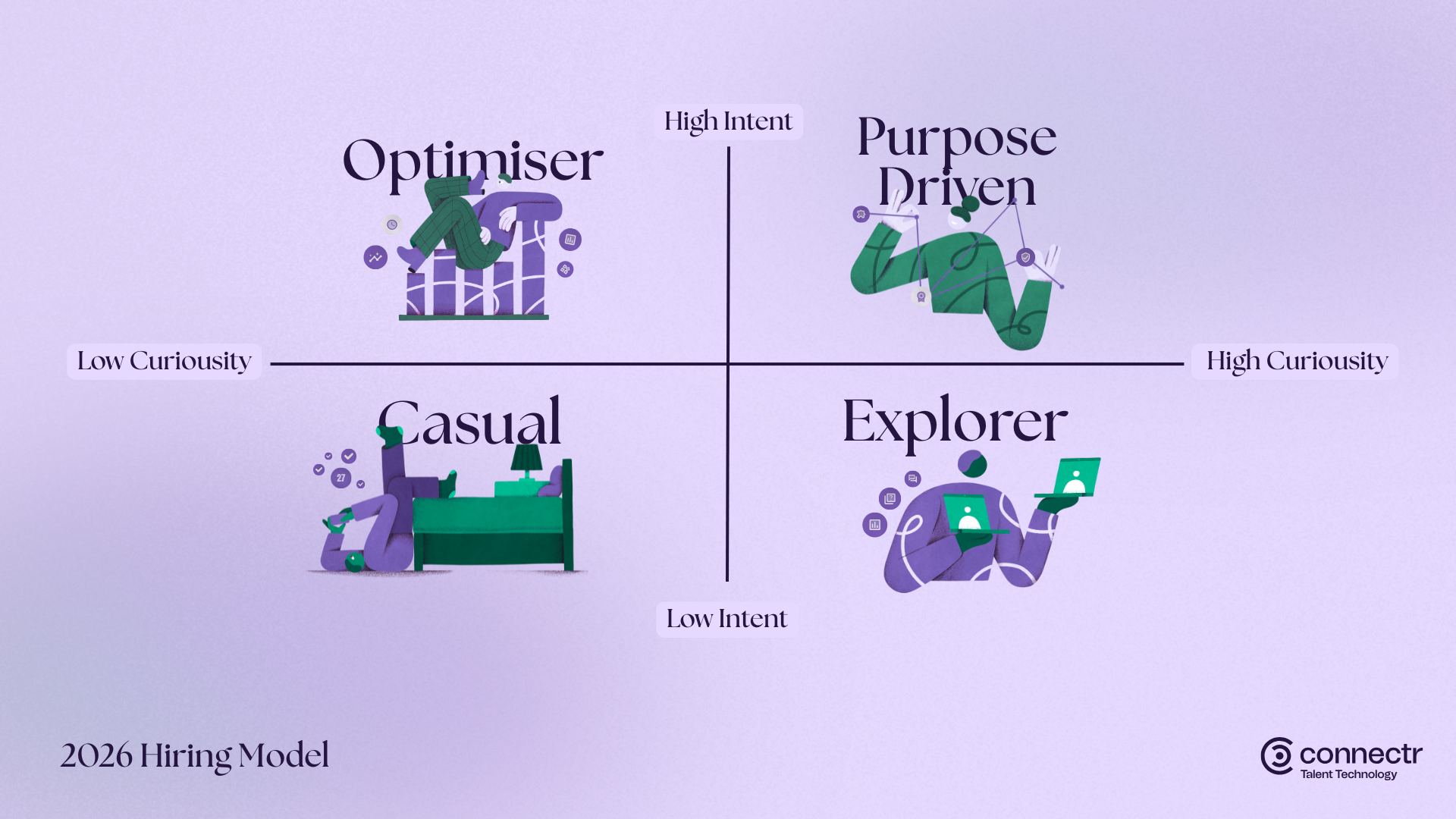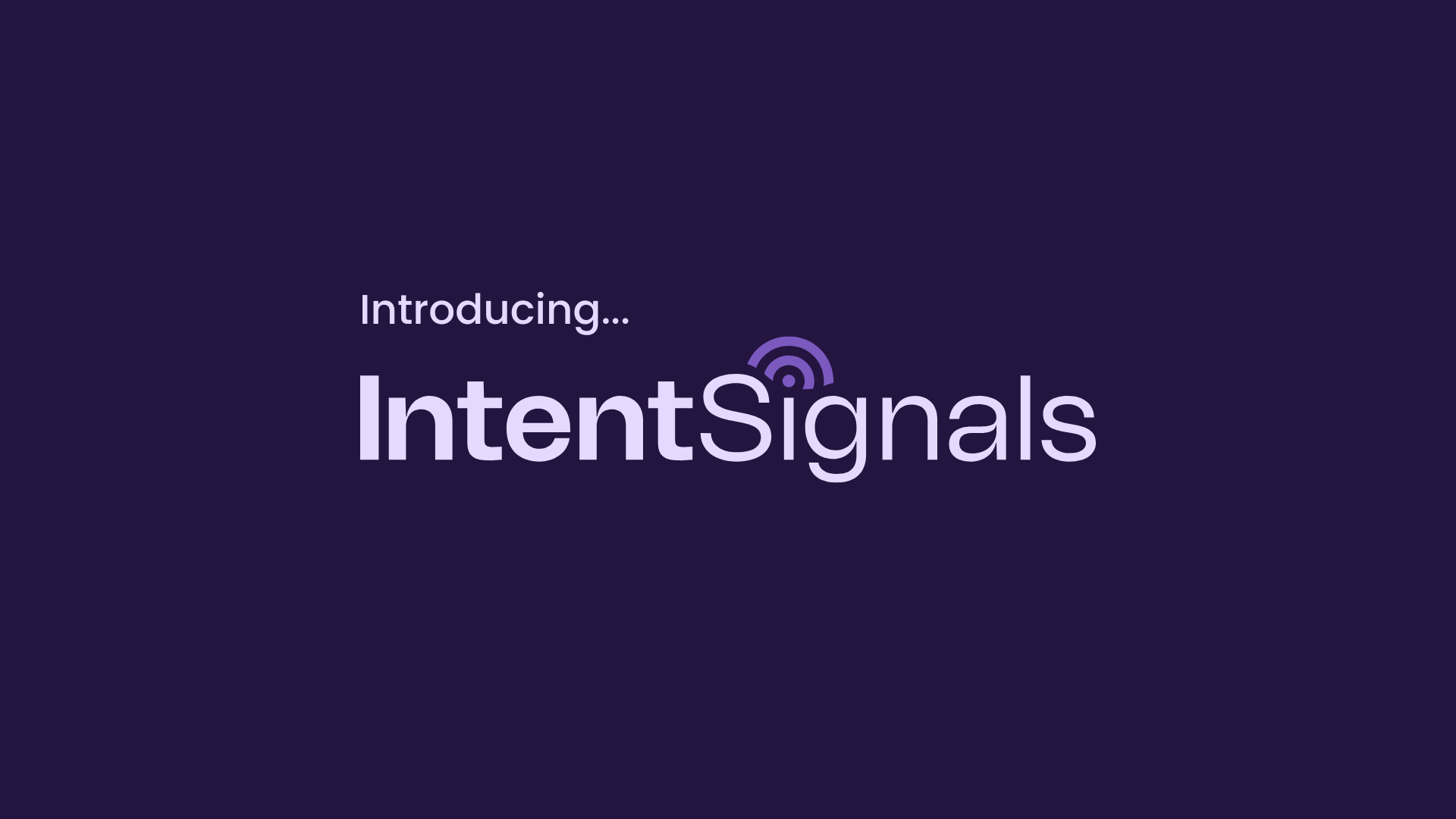January 15, 2026
Changing the narrative in finance & professional services early careers hiring


On March 11th, Connectr Talent Technology hosted the event “Culture + Connection: Changing the Narrative in Finance & Professional Services Early Careers Hiring.”
The event explored the challenges and evolving dynamics companies face when engaging with early career candidates entering the finance and professional services sector. Attendees, including representatives from leading firms in the industry, actively engaged in discussions on this critical topic.
Attended by BDO, Allianz, Grant Thornton, Freeths, ISIO, DLA Piper and Bishop Fleming.
A special thanks to Helen Alkin, Head of Early Careers, Recruitment Strategy Lead at BDO for being our guest speaker and to our own Simon Reichwald, Chief Progression Officer for facilitating the event.
Looking ahead to the next decade, the finance and professional services sector is facing a major workforce shift. An estimated quarter of a million people are set to leave the sector, with a noticeable decline in graduate and school-leaver apprentices entering the field. Gender representation, once at 51% female 20 years ago, has now dropped to 43%.
With this, the question arises: What is the sector doing to address both these changes and change the narrative with the perception challenges it has?
Workplace Readiness & Skills
A major focus of the event was the work readiness of early-career candidates, including both graduates and apprentices. In the finance and professional services sector, there is huge emphasis on qualifications and training for the role itself, but issues such as workplace etiquette, productivity, motivation, and maturity are still prevalent. Post-pandemic, new early careers hires have shown both a lack of professional / appropriate workplace behaviour, with examples such as wearing inappropriate clothing to work, poor timekeeping and lack of engagement during presentations; as well as issues with requests to work later.
Delegates asked the question, are these behaviours a problem with Next Gen talent, or a symptom of firms still adhering to traditional stringent rules and norms that are now out-dated?
The answer seemed to be: ‘a bit of both’. Students who suffered disruption in their education during the pandemic have lived a very different life and childhood to those before them, and have missed out on opportunities and experiences to develop essential interpersonal and observational skills.
As part of ‘a bit of both’ firms should (and some are):
1. Review policies around dress code, flexibility and reflect on changing relationships and behaviours between employees and clients and consider what new skills and positive changes next gen talent are bringing into the business. What defines ‘professionalism’ is changing, and firms must adapt.
2. Be upfront on expectations; bring to life the skills and behaviours that remain essential for a successful and fulfilling career; be upfront about what work-life balance looks like; how success is achieved and what is expected of talent. And crucially rather than simply issuing directives,
- have existing employees talk about what they have learned, what is tales to succeed, what surprised them once in work
- pre-skill incoming talent, and not just on core technical skills but also things like how to prioritise an inbox with 100 emails on a Monday morning!
- do all this through both bite-sized content and giving new starters access to buddies
- enable them to interact with networks and colleague before day 1 to do this learning
Additionally, behaviours (rather than skills) were identified as a crucial area for development. 7 out of 13 key skills identified by the Financial Services Skills Commission are behavioural, underlining the importance of soft skills in shaping the future workforce.
A great example from one of our attendees was using The Productivity Wheel; a productivity exercise that gives trainees a framework to reflect on their daily habits, where and how they spend their 24 hours a day and how they set themselves up for success. Getting new hires to think about how they spend their time; balancing time on social media, ensuring healthy eating, setting boundaries, and getting enough rest. These habits, though personal, play a crucial role in preparing young people for professional challenges and can be a great tool for teaching boundary setting and personal wellbeing.
Outreach and Early Engagement
Helen from BDO shared how only 8% of students are interested in pursuing a career in the finance and professional servicessector, and of that 8%, 90% are only looking at the Big 4 firms.The challenge is clear: how do smaller firms compete for talent?
"We can no longer rely on turning up to campus and expecting the floodgates to open" Helen Alkin, BDO
Helen emphasized the importance of early outreach, starting engagement with schools as early as key stage 3 (aged 11-14), and having a clear mapped out process with all the different touchpoints for that age group. Then again as they progress into Key stage 4 (aged 14-16), Key stage 5 (16-18 year olds) and University. Where the relevant touchpoints and activities for each age group, include events in schools, insight events, work experience (both virtual and in person), The BDO Hive platform for access to more content and digital buddies etc
Work experience or Work Insight programs, including virtual options, should be integrated into outreach efforts. However, companies should move away from rigid one-week programs and instead offer bite-sized 1 or 2 day opportunities and at different points throughout the year to maximise accessibility.
Research into young users' motivations for completing learning content on our Connectr platform supports this shift. When asked if they would like a certificate for completing the entire program, the majority responded with "no." Feedback indicated that young users are time-poor and prefer to select relevant learning content, rather than being required to follow a prescribed, linear journey.
Authenticity & Culture in the Sector:
When asked about how companies can showcase their culture authentically and dispel preconceptions about the sector, Helen’s response focused on three key elements:
- Honesty: Be positively honest about the nature of the work.
- Skills Development: Highlight the skills candidates will acquire. Soft and transferable skills, not just technical.
- Digital buddying: Encourage the use of employee CSR/volunteering time to become a digital buddy for young people to engage with
Early Careers
Turn your outreach into outcomes.
Keep talent engaged long after first contact. Effortlessly build an active early careers pipeline through a personalised candidate experience that delivers real-time insights.

Employer Brand
Activate your employer brand.
Tackle misconceptions and nurture awareness through authentic experiences, with a platform that tells you what’s working and what isn’t.

Talent Acquisition
Transform your recruitment strategy into a reality.
Build a best-in-class candidate experience that uncovers top talent and reduces time-to-hire without compromising on quality.

Other resources
Don’t miss these
Ready for more engaged candidates and better prepared hires?



